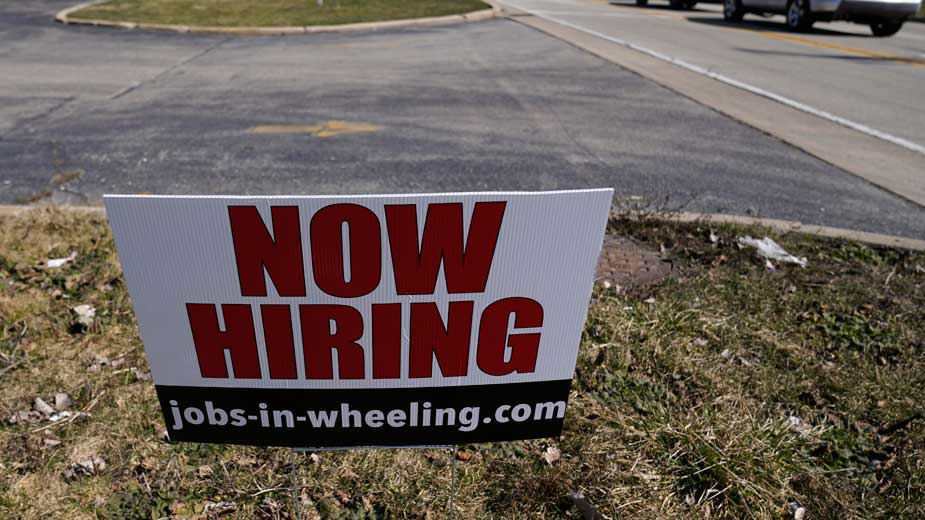Report: Expanded Unemployment Has ‘Small but Noticeable’ Effect on Job Acceptance
YOUNGSTOWN, Ohio – A working paper by economists at the Federal Reserve Bank of San Francisco reports that expanded unemployment benefits during the pandemic have had a small-to-moderate impact on job acceptance.
In their paper, “UI Generosity and Job Acceptance: Effects of the 2020 Cares Act,” Nicolas Petrosky-Nadeau and Robert G. Valletta found that last year’s $600 supplemental payments had a “moderate disincentive effect” on job finding rates, while the $300 payments put in place this year had “small but noticeable effects … on worker availability.”
The study put together a formula to calculate “reservation benefit” – the lowest wage an unemployed worker will accept a job – that factors in expected length of employment after taking the job, how often job offers are arriving and the duration of remaining benefits. The paper used data from the Bureau of Labor Statistics’ Current Population Survey to estimate reservation benefit levels in 2020 – under the $600 per week benefits – for varying educational levels and occupations across the country
“A typical high school educated worker, with $800 in weekly earnings and UI payments near 125% of the previous wage in early May 2020, would not have been deterred from accepting a job offer. In fact, the [pandemic emergency unemployment compensation] payment would need to increased by an additional $250 per week before this person would consider rejecting the job offer,” the authors said.
Data on this year’s $300 payments – which expire at the federal level in September, though states including Ohio are ending the benefits early – was extrapolated from BLS’ 2020 data, the authors note. The “small but noticeable effect” on the labor force, Petrosky-Nadeau and Valletta said, is the $300 supplement’s effect on the baseline job-finding rate.
“One straightforward way to think about that number is that each month in early 2021, about seven out of 28 unemployed individuals receive job offers that they would normally accept, but one of the seven decides to decline the offer due to the availability of the extra $300 per week in UI payments,” they said.
The study examined 10 common job fields – food service, janitors, medical assistance, sales and retail, transportation, construction, teachers, nurses and therapists, IT and management – to determine the unemployment compensation levels at which the average worker would reject a job offer in favor of continuing unemployment.
“From the perspective of the first week of June, the vast majority of occupations show sizable gaps between their replacement rates [plus pandemic unemployment payments] and replacement rates that would cause the unemployed to be indifferent to a job offer at the previous wage,” the authors write.
Exceptions to this are those working in food service and janitorial positions, which made up about 15% of the unemployed in May and June 2020, as compensation under the Cares Act was close to reservation benefit levels.
The study’s findings, they note, are in line with the effects of expanded unemployment during prior recessions, including the Great Recession, when successive expansions allowed for benefits up to 99 weeks.
“A preponderance of studies based on individual worker data find negligible effects of extending the duration of UI payments on the unemployment exit rates for eligible unemployed workers,” Petrosky-Nadeau and Valletta said. “Moreover, UI extensions appear to reduce the labor force exit of the unemployed rather then their employment probabilities, with an effect that is strongest among the long term unemployed, and aggregating the microresponses to UI extensions concludes the effect on the overall unemployment rate is negligible.”
Image via AP Photo/Nam Y. Huh
Copyright 2024 The Business Journal, Youngstown, Ohio.



